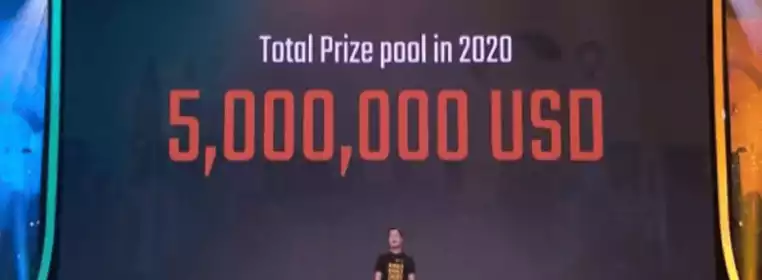PUBG Mobile Set For 2020 Success

It's been a rough year for PUBG. Throughout 2019, it's desktop client has received a lot of improvements, but traded these for many new bugs. It gained an official esports circuit, but lost several big organizations along the way.
PUBG Mobile was one of China's most downloaded mobile titles, but failed to acquire full release approval. It saw an incredible increase in popularity, but was also banned in several countries. And yet, of the two, its future looks the brightest.
Game for Peace and Bans
Originally known as PUBG: Exhilarating Battlefield, PUBG Mobile saw its first Chinese beta release in February 2018. Internationally it would launch a month later. By December of that year, it was estimated to have 70 million daily active players in China and 30 million internationally.
But with this popularity came challenges. In China, new game releases are subject to approval. In 2018 this approval process was frozen, because of regulatory restructuring and an increased concern over video game violence. This meant that Tencent could not make any money off of the game’s popularity.
In response, the publisher decided to shut down the Chinese version of PUBG Mobile in early 2019. In its stead, Tencent released a "patriotic" clone called Game for Peace. This was swiftly approved, despite similarities between the games going as far as a shared user history. In its first three days after launch, the new title is thought to have made $14 million.
Concerns over in-game violence followed PUBG Mobile in other countries as well. Several Indian municipalities banned the title, claiming it promoted violent behaviour in young people and distracted them from their studies. At least 10 students were arrested before measures were repealed.
Similar situations occurred in other countries, eventually leading to the addition of features to promote "healthy gaming". These included a time lock and periodic reminders to take a break and appear to have taken the sting out of said concerns. No new bans have been reported in the second half of 2019.
Mobile esports growth
The game itself, meanwhile, is still doing exceedingly well. Estimated revenue over 2019 alone exceeded $1.3 billion and it has been downloaded more than 600 million times worldwide.
The @PUBGMOBILE Fall Split Global Finals 2019 esports tournament earlier this month racked up 532M total views as the game has also surpassed 600M total downloads pic.twitter.com/1MdfQO5e4f
— Patrick Shanley (@pshanley88) December 16, 2019
Its esports side has also kept growing. Relatively underdeveloped in the West, mobile esports is taken a lot more seriously on the other side of the planet.
To give you an idea:
The 2019 PUBG Mobile Star Challenge Fall Split Finals had $500,000 up for grabs and saw a 525,133 peak and 180,425 average audience outside of China. PUBG's Global Championship only reached 197,470 peak and 79,150 viewers, despite having $2,000,000 in winnings available.
As the year drew to a close, organizations started taking note of this. Renowned European esports org Fnatic recently acquired Indian PUBG squad Team XSpark and teams like Cloud9 and Tempo Storm, which earlier excused itself from PUBG's regular circuit, are participating in the qualifiers for PUBG Mobile's $5,000,000 2020 competition.
With many obstacles overcome, the title is now ready to charge ahead. In part due to Epic Games' self-imposed exile from the Google Play Store, PUBG Mobile has built itself a large market share. Newcomers like Call of Duty mobile will find this hard to intrude on.
With it also being Tencent who runs the show, many of the concerns professional organizations had about working with PUBG Corp. will not be an impediment for this version of the game.
Add to this the expected international growth of mobile esports and 2020 is starting to look like it will have chicken dinners all around.
Image via Tencent
